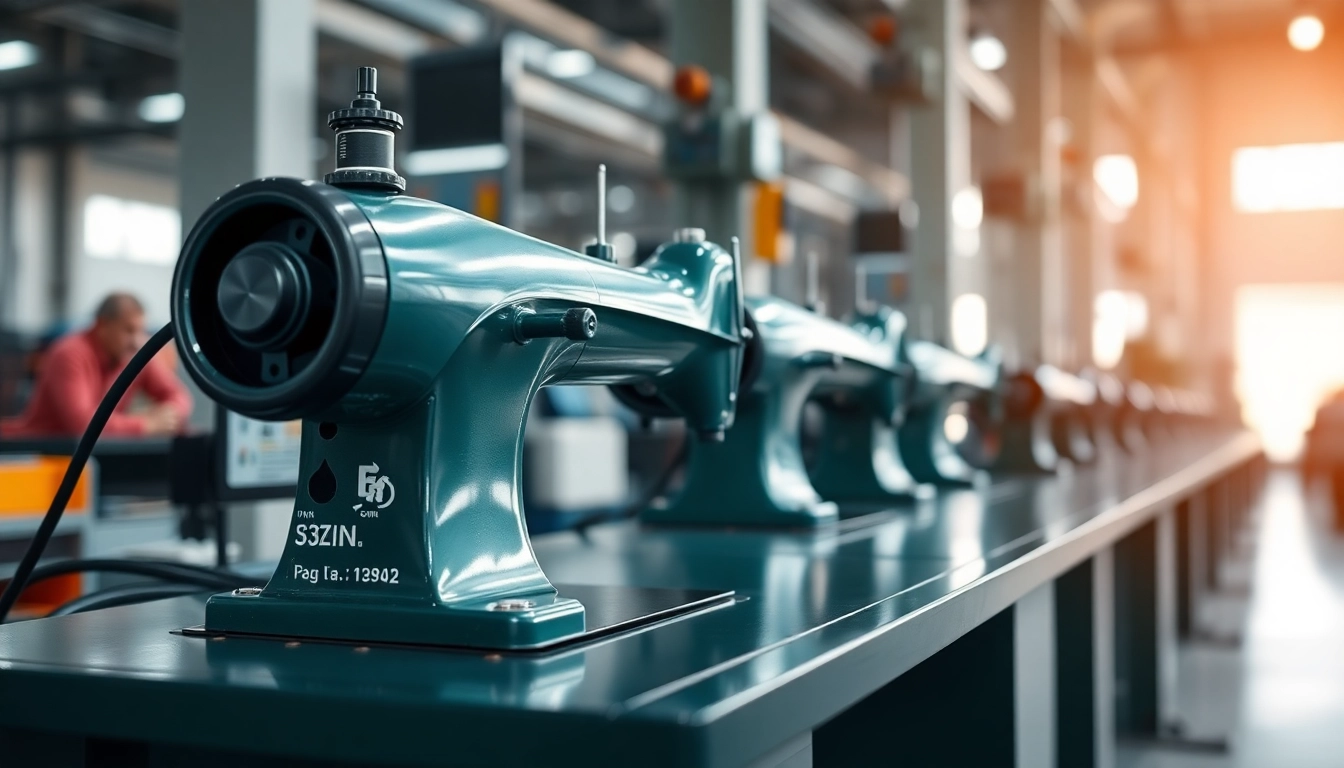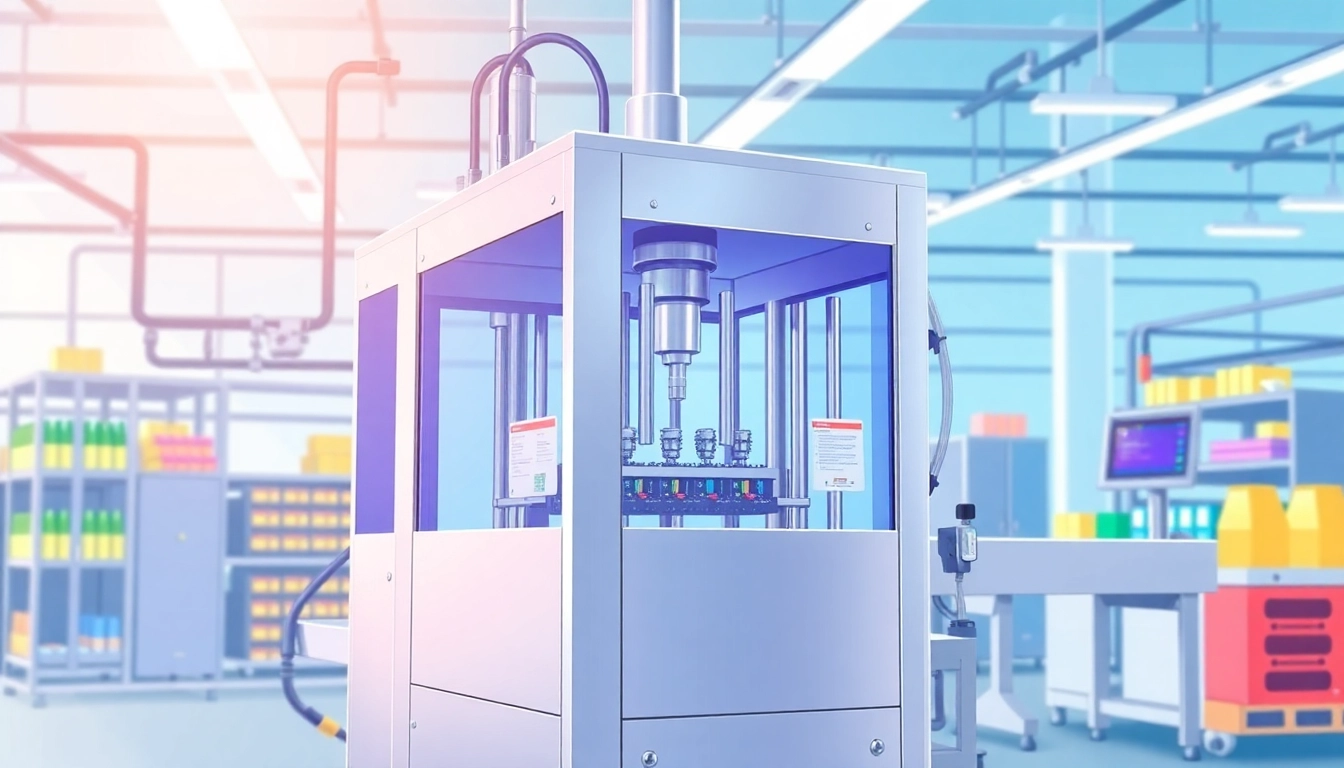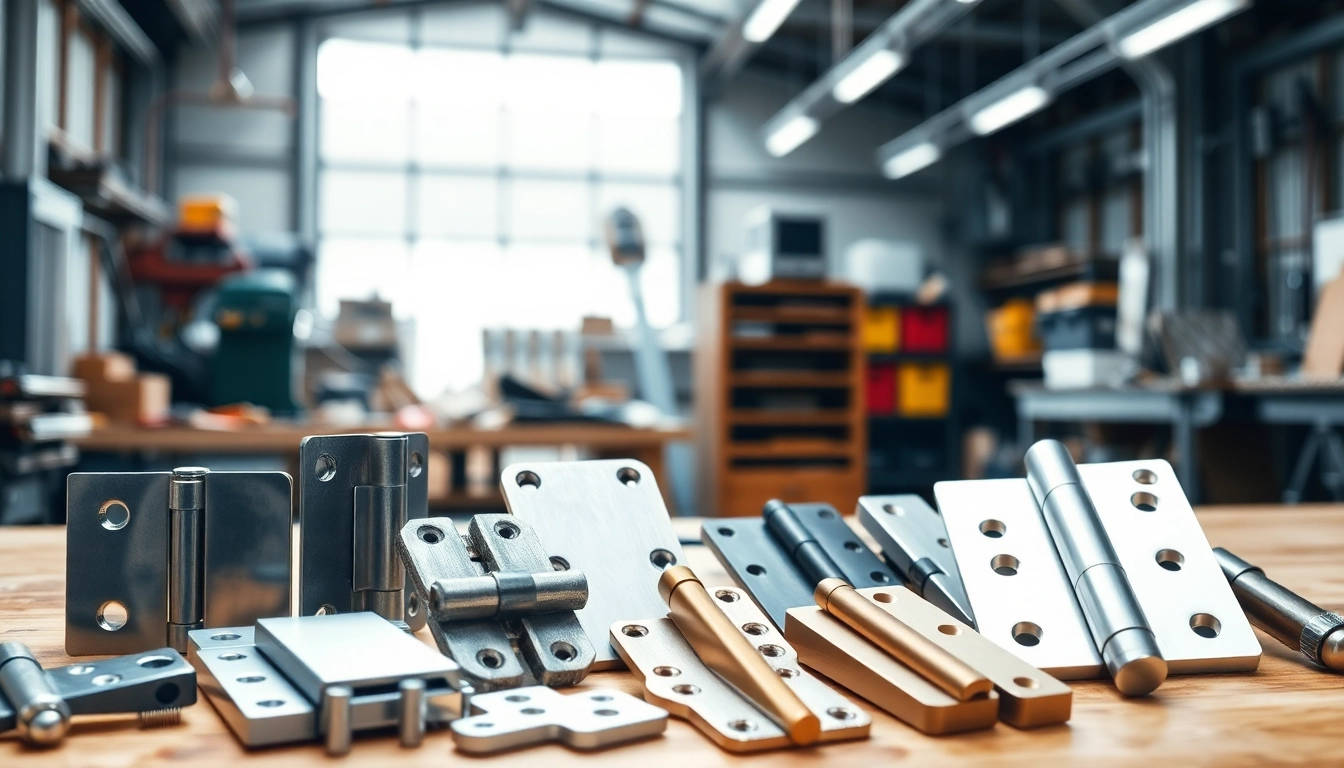Understanding the Filling Machine Landscape
Filling machines are pivotal in the manufacturing process across various industries, helping streamline operations and improve efficiency. These machines are essential for automating the filling process of liquids, powders, and granules into containers, whether it be in food and beverage, pharmaceuticals, cosmetics, or chemicals. Identifying reliable Filling Machine Manufacturers is crucial for businesses seeking high-quality equipment tailored to their specific needs. This article examines the diverse landscape of filling machines, their types, applications, market dynamics, and crucial elements necessary for selecting the right manufacturer.
What Are Filling Machines?
Filling machines are specialized equipment designed to dispense predefined volumes of liquid, powder, or granular materials into an assortment of containers such as bottles, jars, pouches, or boxes. They ensure that the product is filled correctly, both in terms of quantity and consistency, which is crucial for adherence to regulations and customer satisfaction. Filling machines can be manual, semi-automatic, or fully automated, catering to varying production scales.
Types of Filling Machines
Filling machines come in numerous types, each tailored to specific products and production requirements. Here are some of the most common types:
- Liquid Filling Machines: Used primarily for filling liquids, these machines can accommodate free-flowing liquids like water or thicker substances such as oils. Subcategories include volumetric, gravimetric, and piston fillers.
- Powder Filling Machines: Designed for powdered products, these machines ensure accurate measurement and filling of powders into containers. They often feature augers or vibrators to facilitate flow.
- Granule Filling Machines: Suitable for granulated products such as sugar or seeds, these machines are equipped with devices that allow precise filling without spillage.
- Aerosol Filling Machines: Specifically made for filling aerosols, these machines integrate pressurized canisters, which requires specialized handling for safety.
- Paste Filling Machines: Ideal for thick products like sauces or creams, paste fillers use pistons or diaphragm pumps to manage the filling process effectively.
Applications Across Industries
Filling machines are integral to various sectors, playing critical roles in the following industries:
- Food and Beverage: From juice bottles to condiment jars, filling machines help maintain hygiene and consistency while adhering to strict regulations.
- Pharmaceutical: Precise filling is essential in the pharmaceutical industry to ensure dosage accuracy, particularly in liquid medications and supplements.
- Cosmetics and Personal Care: These machines are vital for precisely filling lotions, creams, and serums, providing an aesthetically pleasing and user-friendly packaging experience.
- Chemicals: Chemical manufacturers rely on robust filling systems that accommodate a range of formulations, some of which may be hazardous.
The Market for Filling Machines
Key Players in the Industry
The filling machine market is competitive, featuring both established and emerging manufacturers. Key players include:
- Accutek Packaging Equipment Company: Known for a comprehensive range of filling machines suited for varying production environments.
- Cozzoli Machine Company: Offers liquid filling, capping, and washing machines, emphasizing innovation in production equipment.
- Volumetric Technologies: They specialize in high-performance bottle-filling machines designed for reliability.
- Oden Machinery: Focuses on quality filling systems that support diverse application needs.
- E-PAK Machinery: Provides liquid filling, capping, and labeling solutions tailored for the bottling industry.
Emerging Trends and Innovations
The filling machine industry is witnessing transformative changes driven by technological advancements and evolving consumer demands:
- Smart Technology Adoption: The integration of IoT (Internet of Things) tech in filling machines facilitates real-time monitoring, predictive maintenance, and enhanced operational efficiencies.
- Sustainability Efforts: Manufacturers are emphasizing eco-friendly practices, such as using recyclable materials and energy-efficient systems to meet growing demands for sustainability.
- Customization and Modular Designs: Offering customizable machines that can adapt to specific production lines is becoming more common, allowing businesses to scale according to demands.
- Enhanced User Interfaces: Improved touchscreen controls and user-friendly designs help operators monitor and manage filling operations with ease.
Market Growth and Demand Analysis
The demand for filling machines is anticipated to grow significantly due to factors such as increased consumer goods production, technological advances, and an expanding global market. According to industry reports, the market is projected to witness a CAGR of approximately 5% over the coming years, driven by the food and beverage sector’s continuous innovation and the booming e-commerce industry.
Choosing the Right Filling Machine Manufacturer
Evaluating Manufacturer Credentials
When selecting a filling machine manufacturer, it’s essential to consider certain credentials:
- Industry Experience: Manufacturers with a long-standing presence often indicate reliability and expertise.
- Certification and Compliance: Ensure the manufacturer adheres to industry standards and regulations, which can vary by region.
- Client Testimonials and Case Studies: Assessing feedback from previous clients can provide insight into the manufacturer’s efficiency and customer service quality.
Assessing Machine Performance and Reliability
The performance of a filling machine is critical to achieving operational efficiency. Factors to consider include:
- Accuracy: Ensure machines provide consistent and accurate fills, minimizing waste and product loss.
- Speed: Analyze the filling speed relative to your production needs; faster machines can enhance throughput but might compromise some precision.
- Maintenance Requirements: Machines that require less frequent maintenance while maintaining high performance should be prioritized.
Importance of Customer Support and Service
One of the often-overlooked aspects of choosing a filling machine manufacturer is the level of customer support they provide:
- After-Sales Support: Comprehensive after-sales support ensures that operational disruptions are minimized, and any arising issues are swiftly addressed.
- Training and Resources: Manufacturers should provide adequate training for operating the machines, which can significantly reduce operational errors and increase efficiency.
- Availability of Spare Parts: Quick access to replacement parts ensures that downtime is minimized, a crucial factor in maintaining operational flow.
Cost Analysis of Filling Machines
Factors Influencing Price
The cost of filling machines can vary widely based on several factors, including:
- Type of Filling Machine: Different types of machines come with varying price points based on their complexity and capabilities.
- Automation Level: Fully automated machines are often more expensive than their manual or semi-automatic counterparts due to additional functionalities.
- Customization: Custom machines tailored to specific production needs can incur additional costs, but they can lead to better performances and efficiency over time.
Budgeting for Your Equipment
When budgeting for a filling machine, it is essential to account for the total cost of ownership (TCO) rather than just the initial purchase price. This includes:
- Installation and Setup Costs: Factor in the costs associated with installing the machine and training staff on its operation.
- Operational Costs: Consider the machine’s energy consumption, maintenance requirements, and potential downtime impacts on overall production costs.
Long-Term Value and ROI Considerations
Investing in high-quality filling machines can yield significant long-term benefits:
- Increased Efficiency: Efficient machines can significantly reduce production times and labor costs, enhancing overall profitability.
- Quality Assurance: Consistent fill quality can enhance product quality and customer satisfaction, leading to greater brand loyalty.
- Scalability: Can your filling line adapt as demand grows? Choose machines that can be easily upgraded or expanded to accommodate future production increases.
Future of Filling Machines
Sustainability and Eco-Friendly Practices
The move towards sustainability is reshaping the filling machine market. Manufacturers are now focusing on eco-friendly practices by:
- Reducing Waste: Innovations allowing for more precise fills contribute to less product loss.
- Using Recyclable Materials: Many new machines are designed with materials that are recyclable or made from sustainable resources.
- Energy-Efficient Designs: Energy-efficient technologies reduce costs and environmental impacts over the machinery’s lifecycle.
Automation and Smart Technologies
The implementation of automation and smart technologies is transforming the filling machine industry. Key developments include:
- Integration with IoT: Machines connected to the internet can track performance metrics, provide real-time data, and enable predictive maintenance capabilities.
- Enhanced Data Analysis: Advanced analytics tools can generate insights from production data, helping businesses identify inefficiencies and areas for improvement.
Global Trends Impacting Filling Equipment
Several global trends are influencing the future of filling machines:
- Rising Consumer Demand: The demand for diverse and sustainable products is pushing manufacturers to adopt flexible and adaptable filling solutions.
- Global Supply Chain Changes: Ongoing supply chain disruptions necessitate the need for manufacturers to ensure reliable and efficient filling processes.
- Technological Advancements: Continual advancements in machine design and manufacturing processes contribute to overall market growth.



